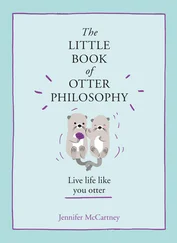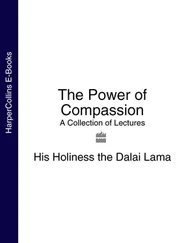Dalai Lama - The little book of Buddhism
Здесь есть возможность читать онлайн «Dalai Lama - The little book of Buddhism» весь текст электронной книги совершенно бесплатно (целиком полную версию без сокращений). В некоторых случаях можно слушать аудио, скачать через торрент в формате fb2 и присутствует краткое содержание. Жанр: Религиозная литература, на английском языке. Описание произведения, (предисловие) а так же отзывы посетителей доступны на портале библиотеки ЛибКат.
- Название:The little book of Buddhism
- Автор:
- Жанр:
- Год:неизвестен
- ISBN:нет данных
- Рейтинг книги:5 / 5. Голосов: 1
-
Избранное:Добавить в избранное
- Отзывы:
-
Ваша оценка:
- 100
- 1
- 2
- 3
- 4
- 5
The little book of Buddhism: краткое содержание, описание и аннотация
Предлагаем к чтению аннотацию, описание, краткое содержание или предисловие (зависит от того, что написал сам автор книги «The little book of Buddhism»). Если вы не нашли необходимую информацию о книге — напишите в комментариях, мы постараемся отыскать её.
These thought-provoking quotations about the importance of love and compassion, and the need for individual responsibility, fuse ancient wisdom with the awareness of the problems of everyday life.
The little book of Buddhism — читать онлайн бесплатно полную книгу (весь текст) целиком
Ниже представлен текст книги, разбитый по страницам. Система сохранения места последней прочитанной страницы, позволяет с удобством читать онлайн бесплатно книгу «The little book of Buddhism», без необходимости каждый раз заново искать на чём Вы остановились. Поставьте закладку, и сможете в любой момент перейти на страницу, на которой закончили чтение.
Интервал:
Закладка:
No matter who we are with, we often think things like, 'I am stronger than him', 'I am more beautiful than her', 'I am more intelligent', and so forth – we generate much pride. This is not good. Instead, we should always remain humble.
To develop patience, you need someone who wilfully hurts you. Such people give us the real opportunity to practise tolerance. They test our inner strength in a way that even our guru cannot. Basically, patience protects us from being discouraged.
It is better not to avoid events or persons who annoy you and give rise to anger, if your anger is not too strong. But if the encounter is not possible, work on your anger and develop compassion by yourself.
The three physical non-virtues are killing, stealing and sexual misconduct. The four verbal non-virtues are lying, divisiveness, harsh speech and senseless speech. The three mental non-virtues are covetousness, harmful intent and wrong view.
We find that between the past and the future there is an extremely thin line – something that cannot really withstand analysis. Past and future exist in relation to the present. But if the present cannot be posited, how can past and future be posited? This is a demonstration of dependent origination.
We learn from the principle of dependent origination that things and events do not come into being without causes. Suffering and unsatisfactory conditions are caused by our own delusions and the contaminated actions induced by them.
For a bodhisattva to be successful in accomplishing the practice of the six perfections – generosity, ethical discipline, tolerance, joyous effort, concentration and wisdom – cooperation with fellow beings and kindness towards them are extremely important.
Suffering originates from various causes and conditions. But the root cause of our pain and suffering lies in our own ignorant and undisciplined state of mind. The happiness we seek can be attained only through the purification of our minds.
The criterion that distinguishes a school as Buddhist is its acceptance of four fundamental tenets, known as the four seals: (i) All composite phenomena are impermanent. (ii) All contaminated things and events are unsatisfactory. (iii) All phenomena are empty. and selfless. (iv) Nirvana is true peace.
Vegetarianism is very admirable. However, according to Buddhism, there is no unequivocal prohibition against eating meat. What is specifically prohibited is taking any meat that you have ordered with the knowledge, or even the suspicion, that it has been killed especially for you.
Try to consider as transitory all adverse circumstances and disturbances. Like ripples in a pool, they occur and soon disappear.
Our lives are conditioned by karma. They are characterized by endless cycles of problems. One problem appears and passes, and soon another one begins.
The essence of all spiritual life is your attitude towards others. Once you have pure and sincere motives all the rest follows.
You can develop the right attitude toward others if you have kindness, love and respect for them, and a clear realization of the oneness of all human beings.
It is faith that removes mental turbidity and makes your mind clear.
Guilt is something that can be overcome. It does not exist in Buddhist terminology. With the Buddha nature, all negative things can be purified.
In one sense, we can say it is delusion – in the form of the wisdom derived from delusions – that actually destroys itself. Similarly, it is the blissful experience of emptiness induced by sexual desire that dissolves the force of sexual impulses.
Irrespective of whether we are believers or agnostics, whether we believe in God or karma, everyone can pursue moral ethics.
Real compassion comes from seeing the suffering of others. You feel a sense of responsibility, and you want to do something for them.
Sometimes your dear friend, though still the same person, feels more like an enemy. Instead of love, you feel hostility. But with genuine love and compassion, another person's appearance or behaviour has no effect on your attitude.
Ordinary compassion and love give rise to a feeling of closeness, but this is essentially attachment. As long as the other person appears to you as beautiful or good, love remains, but as soon as he or she appears to you as less beautiful or good, your love changes completely.
The teachings of Lord Buddha comprise three graded categories for disciplining the mind – Shila: training in higher conduct Samadhi: training in higher meditation and Prajna: training in higher wisdom.
Speech and bodily activities which accompany mental processes must not be allowed to run on in unbridled and random ways. Just as a trainer disciplines and calms a wild and wilful steed by rigorous and prolonged training, so must the indiscreet and wandering activities of body and speech be tamed to make them docile, righteous and skilful.
The healing power of the spirit naturally follows the path of the spirit. It abides not in the stone of fine buildings, nor in the gold of images, nor in the silk from which robes are fashioned, nor even in the paper of holy writ, but it abides in the ineffable substance of the mind and the heart of man., We should sublimate our heart's instinct and purify our thoughts.
I am talking to you and you are listening to me. We are generally under the impression that there is a speaker and an audience and there is the sound of words being spoken. But if I search within myself, I will not find the words, and if you search yourselves you will not find them either – they are all void like empty space. Yet they are not completely nonexistent. This paradox relates to the dual nature of truth.
Many creatures have toiled singly or jointly to make our lives comfortable. The food we eat and the clothes we wear have not just dropped from the sky. Many creatures have laboured to produce them. That is why we should be grateful to all our fellow creatures.
Compassion and loving kindness are the hallmarks of achievement and happiness.
If one feels very profound compassion, this implies an intimate connection with another person exists already.
It is said in our scriptures that we are to cultivate love just like that of a mother towards her only child.
There are many female concerns in the highest yoga tantra. For example, one of the root evils for a man is to abuse or to look down upon a woman. If a man does that, his downfall is inevitable. There is no mention of a comparable downfall for a woman who looks down on a man. So we men are jealous.
Look at one person who annoys you, and use the opportunity to counter your own anger and cultivate compassion. But if the annoyance is too powerful – if you find the person so repulsive that you cannot bear to be in his or her presence – it may be better to look for the exit!
Faith reduces your pride and is the root of veneration. With faith, you can. easily traverse from one stage of the spiritual path to another.
Spiritual intimacy is necessary for a practitioner of Buddhism, especially when one is trying to overcome his mental problems.
When you open yourself up mentally, you do so only with someone you trust from the bottom of your heart, someone you feel very close to. To open yourself up in this way is an important step in overcoming mental problems.
The wood-born insects consume the very wood from which they are born. Such utilization of the path to enlightenment is a unique feature of tantra.
In the special dream state, the special dream body is created from the mind and from vital energy within the body. This special dream body is able to dissociate entirely from the gross physical body and travel elsewhere. One way of developing this special dream body is first of all to recognize the dream as a dream when it is over. Then, you find that the dream is malleable, and you can make efforts to gain control over it.
Читать дальшеИнтервал:
Закладка:
Похожие книги на «The little book of Buddhism»
Представляем Вашему вниманию похожие книги на «The little book of Buddhism» списком для выбора. Мы отобрали схожую по названию и смыслу литературу в надежде предоставить читателям больше вариантов отыскать новые, интересные, ещё непрочитанные произведения.
Обсуждение, отзывы о книге «The little book of Buddhism» и просто собственные мнения читателей. Оставьте ваши комментарии, напишите, что Вы думаете о произведении, его смысле или главных героях. Укажите что конкретно понравилось, а что нет, и почему Вы так считаете.












